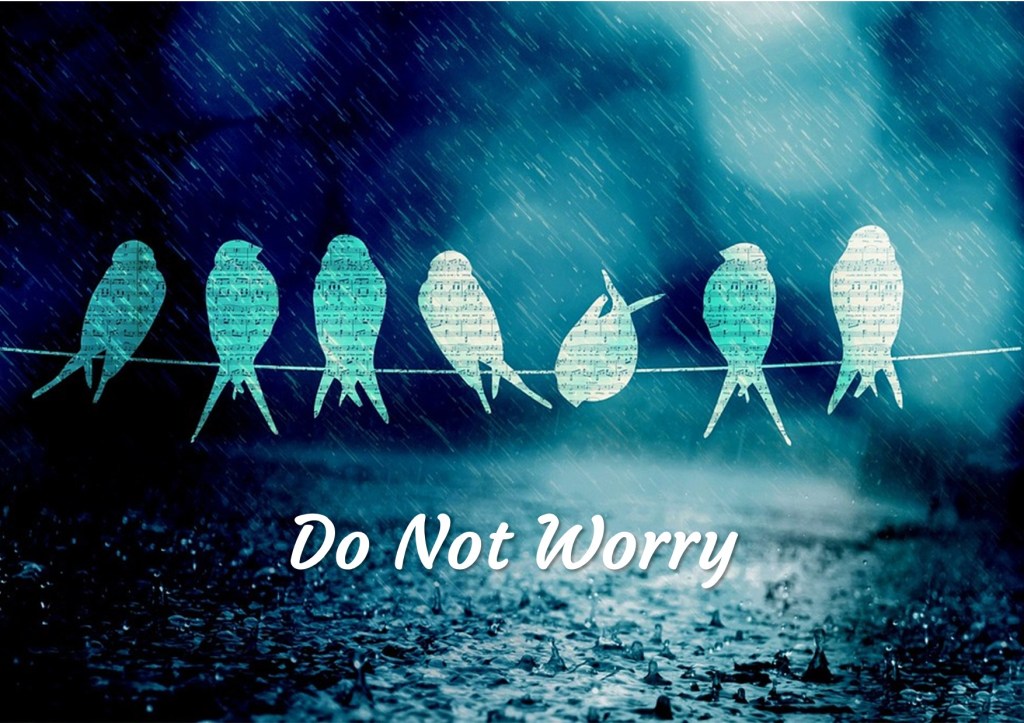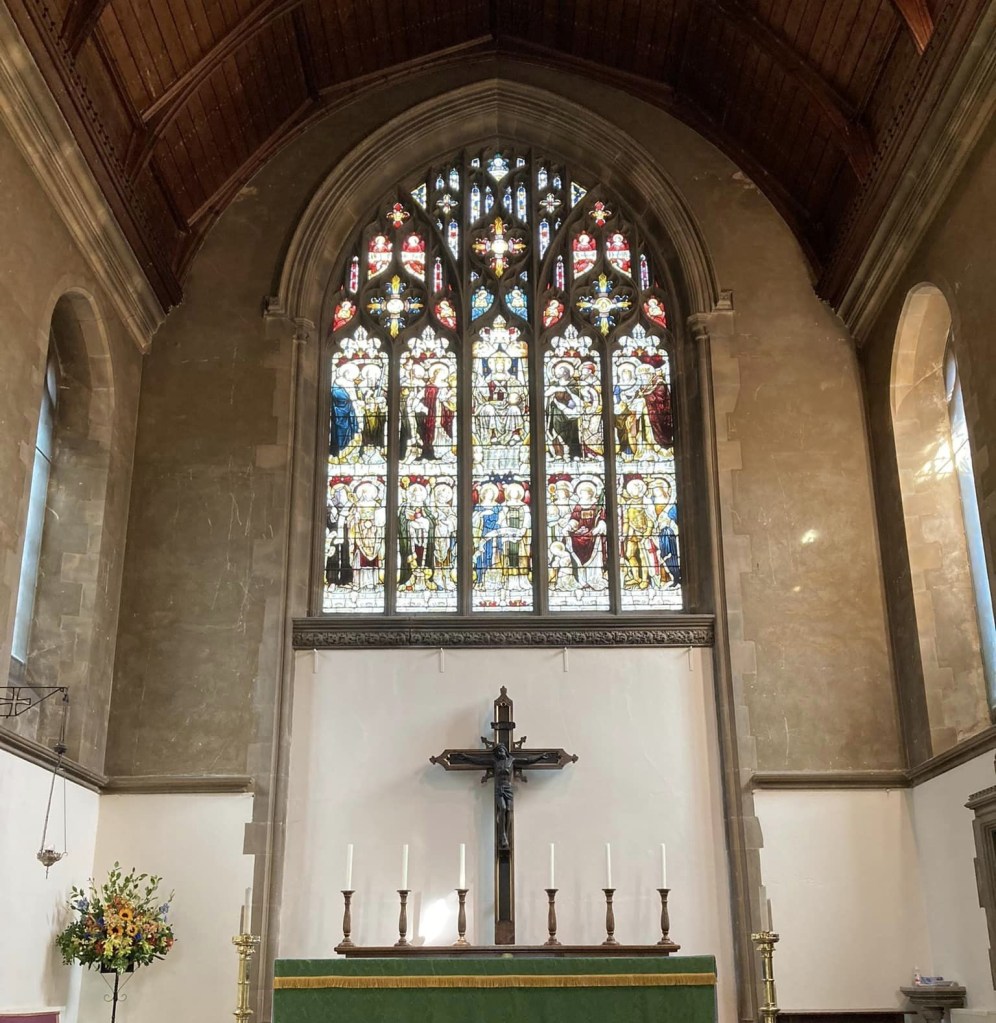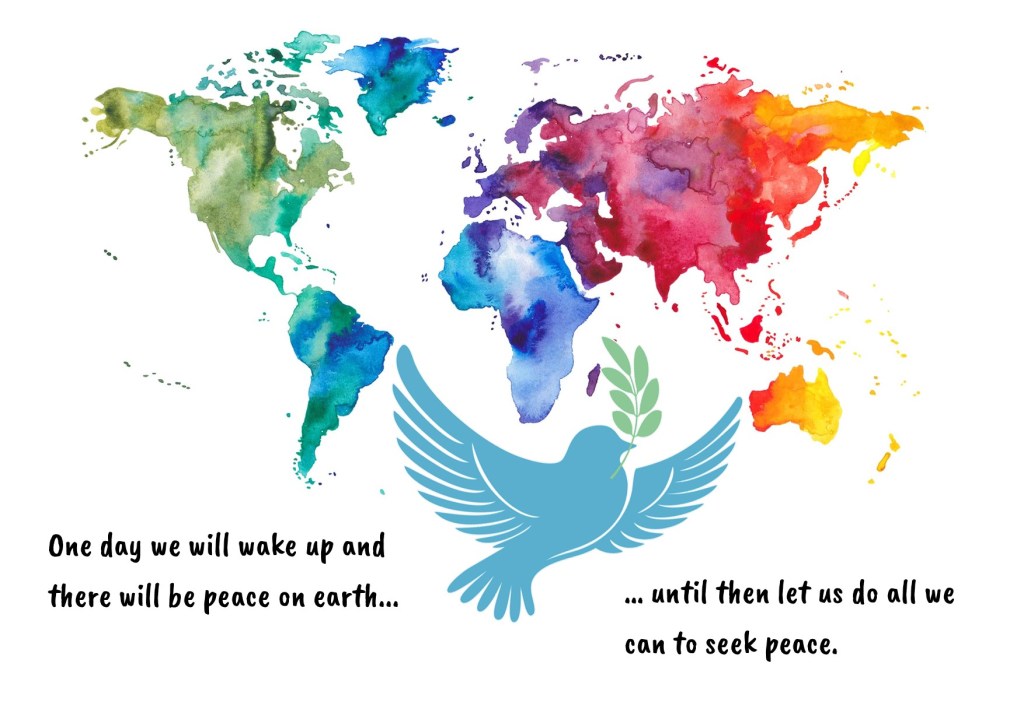
Sermon preached on Sunday 8th February 2026 based on Romans 8:18-25 and Matthew 6:25-34
May I speak and may you hear through the Grace of our Lord’ Father, Son and Holy Spirit. Amen
Everyone has anxieties or worries – everyone… I may be anxious about climbing up into this pulpit, in this robe without tripping up! I may be anxious about how, what I’ve written on these pages, may be heard or understood. I may be anxious that I won’t have time to have a coffee between this service and the next! Lots of anxieties and worries.
No doubt you too could make a list of the things you are anxious about at this time, and some of them will be fleeting moments of thoughts and desires for a positive outcome, whilst others may be deep-seated concerns around health issues or disquiet about events in our world and society.
Everyone has worries… The fact is we live in an anxious age. Alarming news headlines, mounting financial burdens, growing strains in our relationships, medical niggles and changes in our health. All of these often make the future seem very fragile, and in amongst it all anxiety whispers, ‘What if?’ – although more often it shouts!
Yet, into all that noise, Scripture speaks steady, countercultural, gracious words, ‘Do not worry.’ Both of our passages today do not deny suffering or dismiss our needs. What they actually do is locate our lives within the wider purposes of God, that draw us into a vocation of hope and trust; hope that is strong enough to hold our pain; and trust that can free us to live in today.
Even so, ‘Jesus’ and ‘anxiety’ do not sit easily together. What Jesus is trying to show us is that deep down as human beings we can be controlled, even dominated and bullied by our anxieties, but that these worries are futile because that don’t produce any real fruit.
The concerns he highlights are about eating, drinking and clothing. Certainly, in biblical times, where there were no welfare systems or charity safety nets, they were genuine worries about simply surviving, and yes, even today people have to make choices about whether they might put a meal on their table or provide basic needs for their families. So, for them, their worrying was very much justified, even sensible if it came up with a resolution.
And when we place it against our modern day lives, it can often mean our worries turn out to be more about the things we desire rather than things we need. However, I hope we would never tell anyone who was at risk of starving, that food is unimportant. Worrying is natural and reasonable, but each of us sits on a dividing line, that has positive anxiety on one side, which helps us to avoid making mistakes and negative anxiety on the other, that projects us into the not yet existent future rather than living in the present moment. So how can we manage it?
Paul tells us that creation itself is groaning as it waits for glory, whilst Jesus tells us not to worry about tomorrow, because God already knows what we need. Together these passages can teach us how to live faithfully between the ache of the present and the promise of the future.
Paul begins with realism. He does not pretend that faith removes suffering. “The sufferings of this present time,” he says, are real. Also, groaning is not the same as moaning or complaining. Complaining is saying that ‘This shouldn’t be happening’, whereas groaning says, ‘This hurts – yet I’m still holding on’. It is the sound of faith under pressure, the cry of someone who knows that the world is not as God intended it to be.
It also reminds us that anxiety is not a personal failure; it is a symptom of living in a fractured world, because we feel it in our bodies, our finances, our relationships, and our fears.
Paul also refuses to let suffering have the final word. “I consider that the sufferings of this present time are not worth comparing with the glory about to be revealed.” This is looking at it from the perspective of hope through the resurrection, and it’s not just wishful thinking. It is about having confidence in the faithfulness of God, as it looks forward to what we cannot yet see, because if we could already see it then it wouldn’t be hope.
The future glory of God does not erase today’s pain, but it re-frames it. This is the hope we confess in the Creed: “We look for the resurrection of the dead, and the life of the world to come.” Such hope teaches us patience. Not passive resignation, but a steady, prayerful waiting upon God.
So, if it is Paul that addresses the ache of the world, then it is Jesus who addresses the anxiety of the heart. Three times Jesus says, “Do not worry.” And then he speaks about the most ordinary things: food, drink, clothing. This is because Jesus knows our worries are generally practical. He points to birds who do not store grains, and to flowers that do not spin threads. These are not sentimental illustrations, but signs of God’s sustaining care. Our anxiety often arises when we live ahead of ourselves—when tomorrow’s uncertainties overwhelm today’s calling. Jesus gently calls us back to the present moment and reminds us that the same God who clothes the lilies and feeds the birds is attentive to our lives.
Jesus also doesn’t say that our needs don’t matter, just that they do not have to rule us. Instead, we should ‘Strive first for the kingdom of God […] and all these things will be given to you as well.’ Seeking the kingdom means orienting our lives around God’s values, God’s justice, God’s love. When we do, our priorities shift. Worry loosens its grip because our security is no longer tied to outcomes we cannot control.
And Jesus ends with words that are both compassionate and practical. “Do not worry about tomorrow, for tomorrow will bring worries of its own.” In other words, God gives grace in daily portions. Just think of the number of times we have prayed, ‘Give us today our daily bread’, not ‘oh and some for tomorrow as well, and if you can manage it a few fallback items in the larder’. Today’s grace is enough for today.
And whilst we are seeking the kingdom our calling is being reshaped, so that anxiety no longer governs it. It means that our daily work, our care for others, our stewardship of creation, and our commitment to justice and mercy are not distractions from the kingdom of God. They are ways in which the kingdom is being made visible here and now.
So, Jesus does not end this teaching by telling us to try harder not to worry. He ends it by inviting us to trust deeper. The birds still fly, the flowers still bloom, and God is still faithful. The same God who clothes the fields and feeds the sparrows knows each of our names, our needs and what our tomorrows hold. To worry about that suggests we are alone. To believe what Jesus tells us means that we are being held.
So, when we leave this place and tomorrow brings its own questions—about money, health, family, or the future, perhaps we could remember that God is already in our tomorrow, and that we do not need to carry anything that God has promised to provide.
Take today as the gift it is. Walk in trust, not in fear. Seek the kingdom, not control. And rest in the assurance that the God who calls us is more than enough—today, and every day.
Amen











